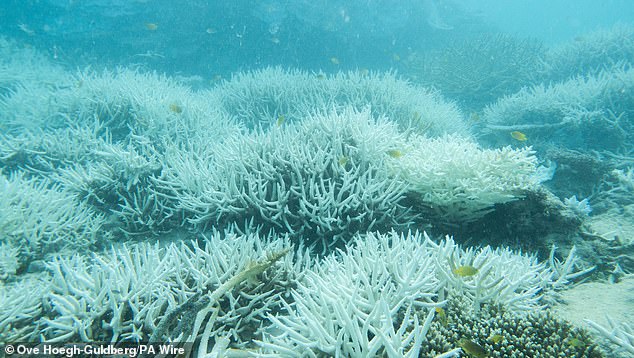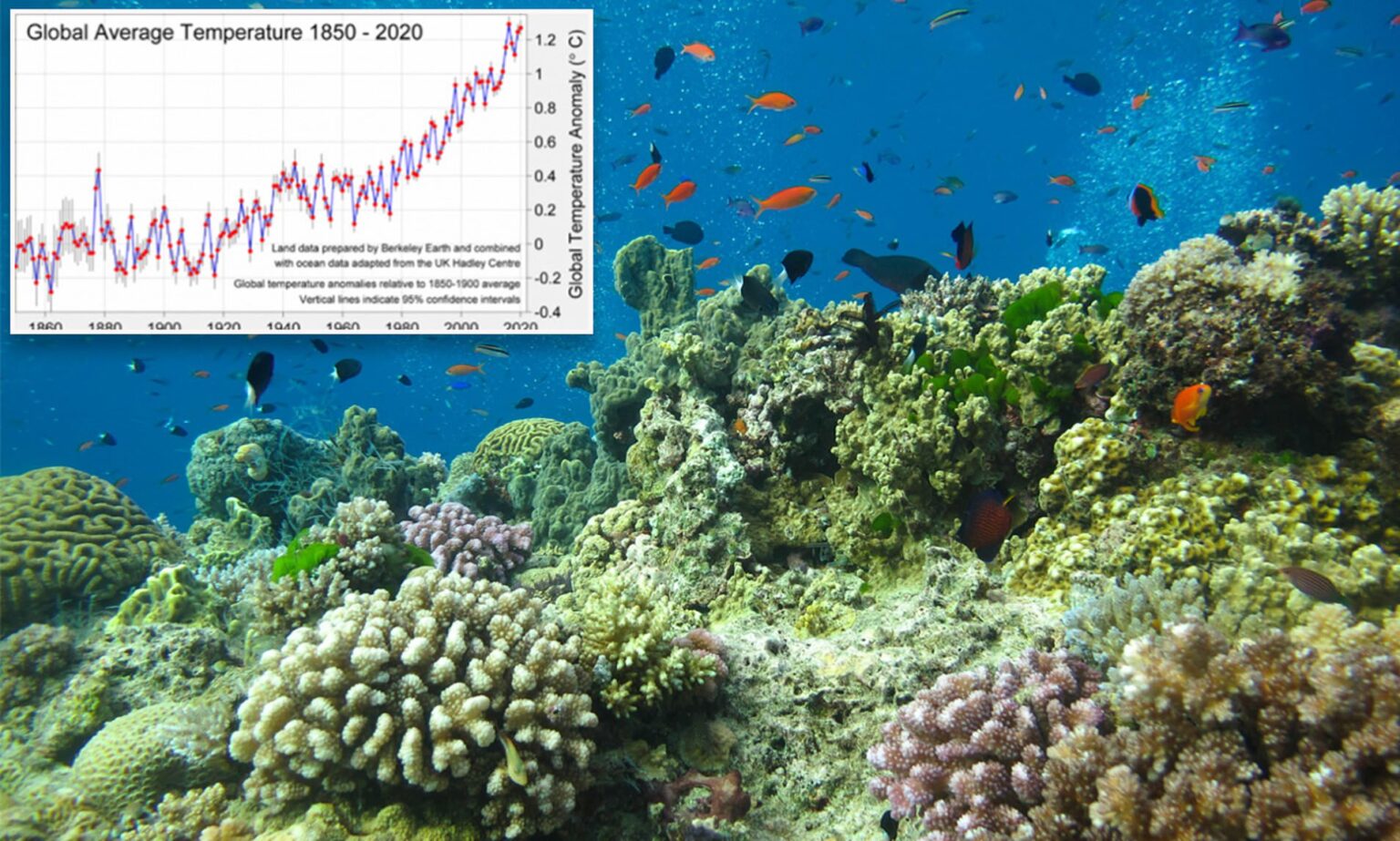The Great Barrier Reef is in danger of becoming extinct due to climate change.
A study conducted by University of Melbourne researchers revealed that the temperature in the reef had not been this high in 400 years.

High temperatures have caused corals to die. They are unable to recover if the temperature remains too hot, and experts believe that the reef could completely disappear.
The study found that the deaths of the corals were linked to the greenhouse gas emissions of humans.
Before the industrial revolution, the reef’s temperature was stable. However, since then, it has been continuously rising.
This year, the temperature in the area reached a record high of 1.73 degrees Celsius.
Mass bleaching occurred in 2004 and 2016, and in 2022, when the temperature reached over 2.0 degrees Celsius.
The Great Barrier Reef is regarded as the largest coral structure in the world.
It contains about 1,500 fish and endangered species, including the manatee and the green sea turtle.
It has also been on the World Heritage list since 1981.
The researchers noted that if the temperature continues to increase, the reef could become unrecognizable in about two to three decades.

